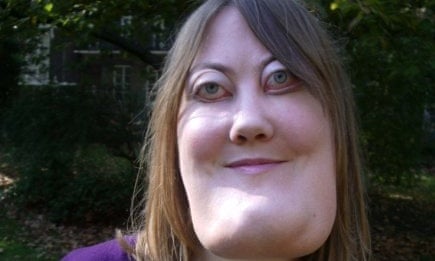On Tuesday, Home Office statistics revealed that reported incidents of hate crime towards disabled people had risen by 25% , yet less than 4% of disability hate crime is actually reported to the police. For those of us who experience disfigurement-related hate crime, these statistics just scratch the surface of a much wider problem.
Severe facial disfigurement is considered a disability under the Equality Act 2010. Thanks to the campaigning efforts of the charity Changing Faces, the law recognises that people like me frequently experience prejudice, discrimination and hostility because of our facial disfigurements.
Since I was a child I’ve experienced bullying, threats of violence, intimidation, and verbal abuse on the street and on public transport. That this is because of the way my face looks, owing to a genetic condition doesn’t mean it should be dismissed as just “mocking”. It’s a disability hate crime. And three years ago, I finally decided to report it to the police.
“You can shut the fuck up, you ugly big-chinned bitch,” said the man on the bus, his grin as flashy as the ring on his left hand. Five minutes earlier, I’d been sitting quietly on the bus with my baby daughter asleep in her pram, when I’d overheard him making racist comments to two black women. I watched with horror as they left the bus in distress. So when I told him, in no uncertain terms, that I thought he was a racist scumbag and should get off the bus, his aggression turned to me.
This man wasn’t some dishevelled drunk (and I’ve experienced a few of those in my time). He was handsome, arrogant, sober and hateful. Being the big-chinned bitch that I am (technically accurate, I give him that) I took his photo on my mobile phone to use as evidence. He smiled for the camera.
Eventually, he left. I got off at the next stop and called the police. Two police officers came and I explained, in floods of tears, that I wanted to report it as a disability hate crime and a race hate crime (I felt it was important to acknowledge what he’d said to those two women as well). I showed them the photo on my phone.
To their credit, the police were kind and considerate. It was only on my way home that I realised they hadn’t actually taken a copy of the photo. I later received a letter with a crime reference number and contact details for Victim Support. But I have no idea if they looked for CCTV footage on the bus or if the incident was logged as a disability hate crime as I’d requested. I never heard any more about it.
Three years on, I sometimes find myself feeling tense when using public transport, especially when it’s dark. And I’m always in the constant state of hypervigilance that I know many other people with disfigurements and disabilities feel when out alone in public.
You may be reading this and thinking that I should have stayed silent on the bus. You may think I should have just ignored it. The thing is, when you’re a child with a severe facial disfigurement, you get so used to the stares, the teasing, and people telling you to “just ignore it” that by the time you’re an adult, and the teasing has escalated to harassment and intimidation, it doesn’t occur to you that what you’re experiencing is unlawful, let alone a hate crime. I believe that this is why so many incidents of disfigurement-related hate crime go unreported.
To tackle this problem, we must educate young people about the different forms of hate crime. Young people with facial disfigurements and other disabilities should be educated about their rights, and empowered with the understanding that disability and disfigurement-related hate crime is totally unacceptable.
A teenage girl commented on the Changing Faces website this week: “I grew up in London where I found hate crime was prevalent on a day-to-day basis, particularly on public transport. But no matter how bad some of it was, I would never report it because I don’t see my [facial] disfigurement as serious enough to be described as a disability.” To put a stop to disfigurement-related hate crime, we need to acknowledge it exists in the first place and take it seriously. It shouldn’t be ignored.
